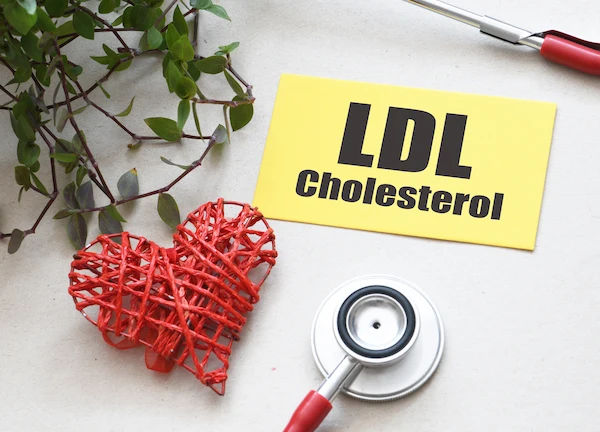- Male
- 32 Years
- 22/01/2025
I've noticed my heart rate has been pretty low for the past couple of days, like around 55 beats per minute when I'm just resting or sleeping. Should I be worried about this, or is it normal?
Answered by 1 Apollo Doctors
Slow heart rate can be concerning, especially if it persists for a few days. A heart rate of 55 beats per minute or above at rest or during sleeping time may indicate bradycardia. It is important to identify the underlying cause of this slow heart rate. Some common causes of bradycardia include medication side effects, electrolyte imbalances, heart disease, or an underactive thyroid gland. If you are experiencing symptoms such as dizziness, fainting, chest pain, or shortness of breath along with the slow heart rate, it is important to seek medical attention promptly. Your doctor may recommend further evaluation, which may include an electrocardiogram (ECG) or other tests to determine the cause of the bradycardia. In some cases, medication may be prescribed to help regulate the heart rate. However, the specific treatment will depend on the underlying cause of the slow heart rate. It is important to follow up with your healthcare provider for a proper evaluation and management plan.
Dr. Dr Khaleel Suggests...
Consult a Cardiologist
Answered 04/07/2025
0
0

More Cardiology Health Queries
View allI'm having really bad pain in my left hand and shoulder since this morning. It's pretty severe, and I'm worried if it could be due to acidity or something related to the heart. How can I figure out what's causing it? Can you help me?
Left hand and shoulder pain can be a symptom of a heart-related issue, especially if it is severe. It is important to rule out any cardiac problems. I recommend you to take a tablet of Aspirin 325mg immediately and visit the nearest hospital for further evaluation and treatment. This can help in case it is related to a heart problem. If the pain is due to acidity, you can take an antacid like Tums (Calcium carbonate) 500mg. But it is crucial to get a proper diagnosis to determine the exact cause of your symptoms.
Answered by 1 Apollo Doctors
I've been having these sudden heart palpitations and some breathlessness since last week in May, and even when I do activities like slow walking or yoga, my heart rate spikes up to around 150-170. After seeing my cardiologist, I was on Inderal 10 mg for 2 months, but it didn't help much. Now I'm taking Betacap TR 40 and Daxid 25 mg, but sometimes my heart still races even when I'm just resting. My cardiologist mentioned that stress might be causing it. I'm really anxious to know when this might get better. I'm 31, breastfeeding, and all my tests like ECG, echo, thyroid, and sugar levels came back normal. I'm using my iWatch to track my heart ratehow reliable is that, or should I consider a different device?
Based on your symptoms and the medications you have tried, it seems like you are experiencing persistent tachycardia and palpitations despite the treatment. Since your cardiologist mentioned stress as a possible cause, it may take some time to see improvement as managing stress levels can be a gradual process. In addition to the medications you are currently taking (betacap tr 40 and daxid 25mg), your doctor may consider adjusting the dosage or trying other medications to better control your symptoms. It is important to continue following up with your cardiologist for further evaluation and management. Regarding monitoring your heart rate, while devices like the Apple Watch can provide useful information, they may not always be as accurate as medical-grade monitoring devices. If you are experiencing persistent symptoms and want more accurate heart rate monitoring, you may consider investing in a dedicated heart rate monitor recommended by your healthcare provider. It is essential to continue working closely with your cardiologist to address your symptoms effectively and monitor your progress over time.
Answered by 1 Apollo Doctors
I'm a 27-year-old guy and I've been having some mild chest pain for about six months now. I exercise daily, eat healthy, and I don't smoke. Could this be something serious or is it just anxiety or something else? Should I be concerned?
It's generally safe to use Moxikind (moxifloxacin) for cold and Monocef (cefixime) for cough together. However, consider the following: _Phensedyl (cough syrup)_: Avoid using Phensedyl with Moxikind and Monocef without consulting your doctor, as it may interact with antibiotics. _Consult your pediatrician_ before administering these medications together, especially if your child has any underlying medical conditions or is taking other medications. Also, ensure you: 1. Complete the full course of antibiotics as prescribed. 2. Follow the recommended dosage and administration instructions. 3. Monitor your child's condition and report any adverse reactions or concerns to your pediatrician.
Answered by 1 Apollo Doctors
Disclaimer: Answers on Apollo 247 are not intended to replace your doctor advice. Always seek help of a professional doctor in case of an medical emergency or ailment.

.webp)
.webp)

